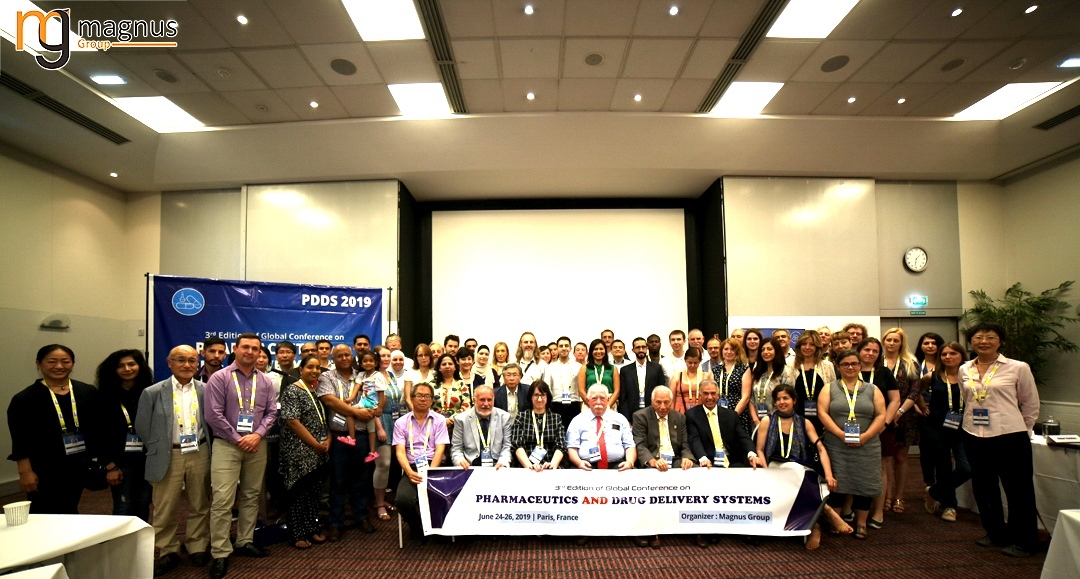About Hematology 2026 | Hybrid Event
Scheduled from October 8-10, 2026, the 2nd Edition of International Summit on Hematology and Blood Disorders (Hematology 2026) will be held in Tokyo, Japan and Online, with a hybrid format allowing global participation and collaboration. Under the theme “Advancements in Hematology: Shaping the Future of Blood Disorder Care”, the summit is set to provide a dynamic platform for professionals across hematology and related disciplines to explore advancements, share insights, and foster innovation in the diagnosis, management, and treatment of blood disorders.
Marking a significant gathering of hematologists, researchers, clinicians, laboratory specialists, healthcare professionals, and policymakers, the summit offers unparalleled opportunities for knowledge exchange and professional networking. Attendees can engage in meaningful dialogue with global experts, establish collaborations, and gain exposure to emerging practices and strategies that are transforming the field. The event aims to bridge research and clinical applications, encouraging cross-disciplinary learning and fostering partnerships that drive progress in patient care and scientific discovery.
Hematology 2026 features a diverse program including keynote presentations, oral sessions, poster exhibitions, workshops, and panel discussions. Participants will have the chance to showcase their latest research, exchange ideas with peers, and explore innovative approaches that address both current and future challenges in hematology. Interactive sessions are designed to stimulate discussion, inspire new research directions, and highlight translational applications of recent scientific advancements.
Looking forward to connecting with professionals worldwide, fostering collaboration, and advancing comprehensive knowledge in hematology and blood disorders to shape the future of research and clinical practice.
Recommended: Hematology Conferences 2026 | Blood Disorders Conference 2026 | Hematology Conferences | Blood Disorders Events 2026 | Blood Diseases Congress | Hematology Meetings
SIGN UP FOR UPDATES
Get news, updates, and more from the Conference.
Past Conference Information
Upcoming Hematology Conferences:
| Conference | Venue | Dates |
| 2nd Edition of International Summit on Hematology and Blood Disorders |
October 8-10, 2026 |
International Summit on Hematology and Blood Disorders Report:
Magnus Group successfully completed “International Summit on Hematology and Blood Disorders (Hematology 2023)” during April 27-28, 2023 (Online event) based on the theme of “Transfusing Innovations and Exploring Emerging Concepts in Hematology”
The Hematology 2023 conference organized by Magnus Institution created a platform for brilliant minds to converge and exchange revolutionary ideas. The event featured renowned speakers who delivered insightful presentations, while young researchers, business delegates, and students from around the world added a vibrant and diverse perspective to the discussions. It was an exceptional gathering that showcased the global impact of hematology research and collaboration.
For Hematology 2023 Final Program: Click Here
For Hematology 2023 Abstract Book: Click Here
Magnus Group extends its sincere appreciation to the Organizing Committee Members, Keynote Speakers, and Session Chairs for their exceptional efforts in transcribing the sessions. Your diverse and unique contributions have played a vital role in making this conference a truly remarkable event.
Recommended Hematology Conferences: Hematology Conference 2026 | Hematology World Congress 2026 | Hematology Conferences 2026 | Hematology Congress 2026 | Hematology Meetings | Hematology Events 2026 | Hematology World Conferences 2026 | Hematology Conference | World Hematology Meeting 2026 | Hematology Congress | Hematology World Conference 2026
Hematology 2023 Organizing Committee:
Stefan Gluck, Global Medical Affairs at Celgene Corporation- USA
Jie Xu, The University of Texas MD Anderson Cancer Center- USA
Joan Lluis Vives Corrons, Institute for Leukaemia Research Josep Carreras- Spain
Ahmed N Ghanem, Mansoura University- Egypt
Reena Nair, Tata Medical Center- India
Hematology 2023 Keynote Line Up:
Joan Lluis Vives Corrons, Institute for Leukaemia Research Josep Carreras- Spain
Reena Nair, Tata Medical Center- India
Stefan Gluck, Global Medical Affairs at Celgene Corporation- USA
Jie Xu, The University of Texas MD Anderson Cancer Center- USA
Ahmed N Ghanem, Mansoura University- Egypt
Hematology 2023 Oral Line Up:
Francis Ajeneye, Princess Alexandra Hospital NHS Trust- United Kingdom
Xing Cui, The Second Affiliated Hospital of Shandong University of Traditional Chinese Medicine- China
Diwakar Sharma, All India Institute of Medical Sciences- India
Ritu Sharma, Government Medical College- India
Francis Ajeneye, Princess Alexandra Hospital NHS Trust- United Kingdom
Aristotle G Koutsiaris, University of Thessaly- Greece
Milos Bohonek, Military University Hospital Prague- Czech Republic
Jean Mercier Ythier, University of Paris Pantheon Assas- France
Pranavi Sanka, Warren Alpert Medical School of Brown University- United States
Ahmed N Ghanem, Mansoura University- Egypt
Eunice Owino, Sickle Cell Uhuru Trust- Kenya
Erin Weigel, Kedrion Biopharma- United States
Hamzullah Khan, Nowshera Medical College- Pakistan
Alex Chandy, Stoke Mandeville Hospital, United Kingdom
Evelyn Harlow Mwesigwa, Uganda National Health Laboratory and Diagnostic Services- Ministry of Health- Uganda
Michiko N Fukuda, Sanford-Buhnham-Prebys Medical Discovery Institute- United States
Brandon Lucke Wold, University of Florida- United States
Sanghoon Lee, Marshall University- United States
Shaoying Li, The University of Texas MD Anderson Cancer Center- United States
Joanna Fiddler, Clemson University- United States
Lucia Mundo, University of Limerick- Ireland
Lilija Bancevica, Riga Stradins University- Latvia
Marina Nagervadze, Batumi Shota Rustaveli state university- Georgia
Neelesh Jain, Transfusion Medicine at Balco Medical Centre- India
Dayanand Ingle, Bharati Vidyapeeth College of Engineering- India
Mousa Qatawneh, Queen Rania Children's Hospital- Jordan
Sweta Pandey, Shyam Shah Medical College- India
Sakshi Yashwant Patil, Yashwant Hospital- India
Vani Rajashekaraiah, JAIN (Deemed-to-be University)- India
Gilad Itchaki, Meir Hospital- Israel
J Somasekar, Gopalan College of Engineering and Management- India
Emanuele Calabro, Ministry of Instruction, University and Research- Italy
Imene Hocine, University of Algiers- Algeria
Hasnaa Osama, Beni-Suef University- Egypt
Mahmoud Ibrahim Elbadry, Sohag University- Egypt
Merve Pamukcuoglu, Bilkent City Hospital of Ankara- Turkey
Samiah Shahid, The University of Lahore- Pakistan
Abdullah Ali Gafar, Ministry of Public Health-Yemen- Yemen
Noha Hassan Mahboub, October 6 University, Cairo University- Egypt
Thoraya Mohamed Abdel Hamid, NCI Cairo University- Egypt
Emmanuel Ifeanyi Obeagu, Kampala International University- Uganda
Abideen Salako, Nigerian Institute of Medical Research- Nigeria
Recommended Hematology Conferences: Hematology Conference 2026 | Hematology World Congress 2026 | Hematology Conferences 2026 | Hematology Congress 2026 | Hematology Meetings | Hematology Events 2026 | Hematology World Conferences 2026 | Hematology Conference | World Hematology Meeting 2026 | Hematology Congress | Hematology World Conference 2026
Hematology 2023 Poster Line Up:
Asif Mahmood, Jiangsu University- China
Madeeha Subhan Waleed, Lower Bucks Hospital- United States
Madeeha Subhan Waleed, Lower Bucks Hospital- United States
Mehndi Dandwani, Danbury Hospital- United States
Francis Torres, Children's Hospital of San Antonio- United States
Marie Plante, Mayo Clinic Florida- United States
Anupriya Ganguly, University of Florida-Jacksonville- United States
Silva Wellington Santos, Federal University of Bahia- Brazil
Esraa Elsayed Abass, October 6 University, Cairo University- Egypt
Ebtihal Ahmed Babekir Omer, Al Neelain University- Sudan
Upcoming Conferences:
Conference Name: 7th Edition of Cardiology World Conference
Dates: October 08-10, 2026
Venue: Tokyo, Japan
Conference Name: 9th Edition of International Cancer Conference
Dates: October 08-10, 2026
Venue: Tokyo, Japan
Conference Name: 6th Edition of International Conference on Tissue Engineering and Regenerative Medicine
Dates: September 28-30, 2026
Venue: London, UK
Conference Name: 8th Edition of Euro-Global Conference on Pediatrics and Neonatology
Dates: September 28-30, 2026
Venue: London, UK
Conference Name: 3rd Edition of Global Conference on Gynecology & Womens Health
Dates: October 27-29, 2025
Venue: Orlando, Florida, USA
Conference Name: 5th Edition of World Obesity and Weight Management Congress
Dates: October 23-25, 2025
Venue: Orlando, Florida, USA
Conference Name: 4th Edition of International Heart Congress
Dates: June 22-24, 2026
Venue: Barcelona, Spain
Conference Name: 5th Edition of International Public Health Conference
Dates: March 19-21, 2026
Venue: Singapore
Conference Name: 2nd Edition of International Summit on Hematology and Blood Disorders
Dates: October 8-10, 2026
Venue: Tokyo, Japan
Upcoming Nursing Conferences
Conference Name: 6th Edition of Singapore Nursing Research Conference
Dates: March 19-21, 2026
Venue: Singapore
Conference Name: 9th Edition of Nursing World Conference
Dates: October 27-29, 2025
Venue: Orlando, Florida, USA
For Magnus Group Conferences Reviews:
Magnus Group Hematology Conferences Reviews | Magnus Conferences Reviews
Conference Schedule
Registration
Opening Ceremony and Introduction
Keynote Presentation I
Refreshment Break
Keynote Presentation II
Lunch
Break Out Session I
Refreshment Break
Break Out Session II
Keynote Session III
Refreshment Break
Break Out Session III
Lunch
Poster Presentations
Refreshment Break
Break Out Session IV
Keynote Session IV
Refreshment Break
Break Out Session V
Lunch
Break Out Session VI
End Note Session and Closing Ceremony
Photo Gallery (Our Past Events)
Testimonials

Many thanks. I certainly enjoyed the conference. Being in Rome is a special occasion and in wonderful weather. Again many thanks for the invitation.

It was an excellent conference and wonderful experience

It was a very fascinating conference and had a wonderful experience to share about research with professionals in the field

Firstly, I would like to congratulate Magnus group about the amazing conference. I am planning to participate again in the next one in Paris.








